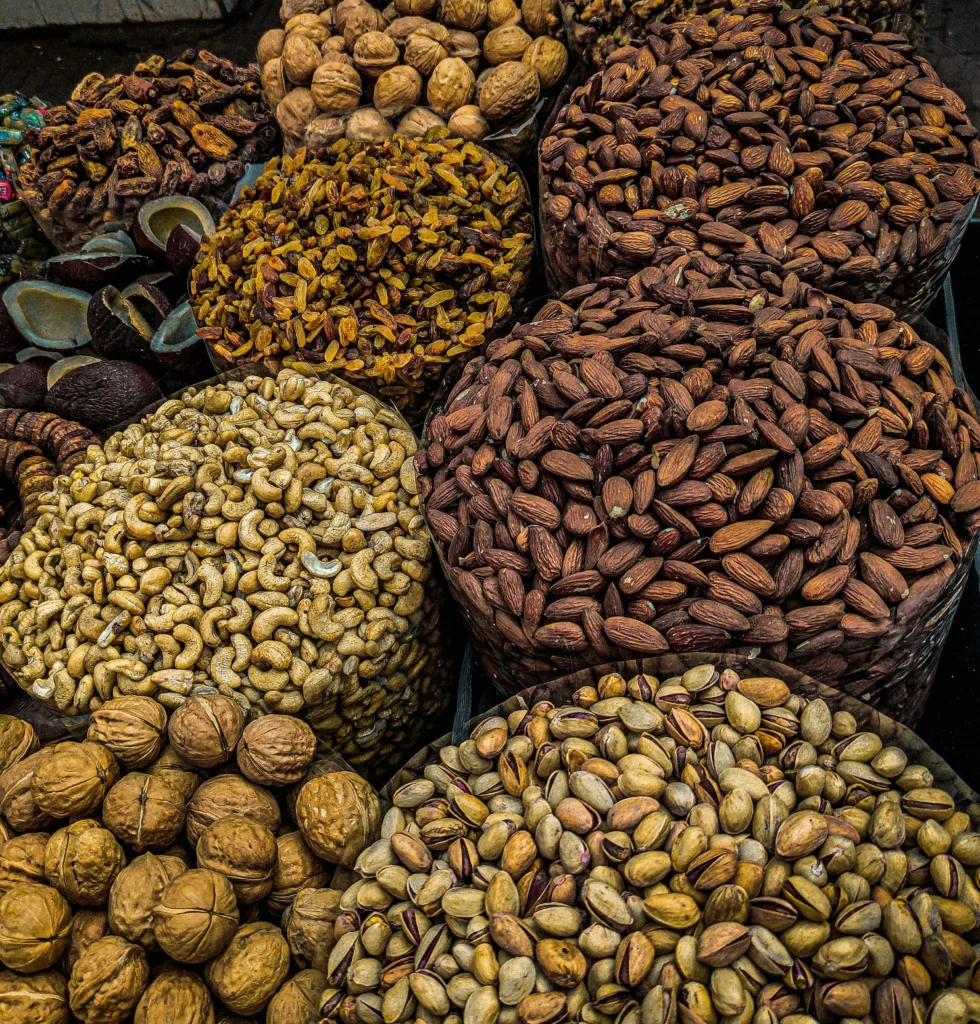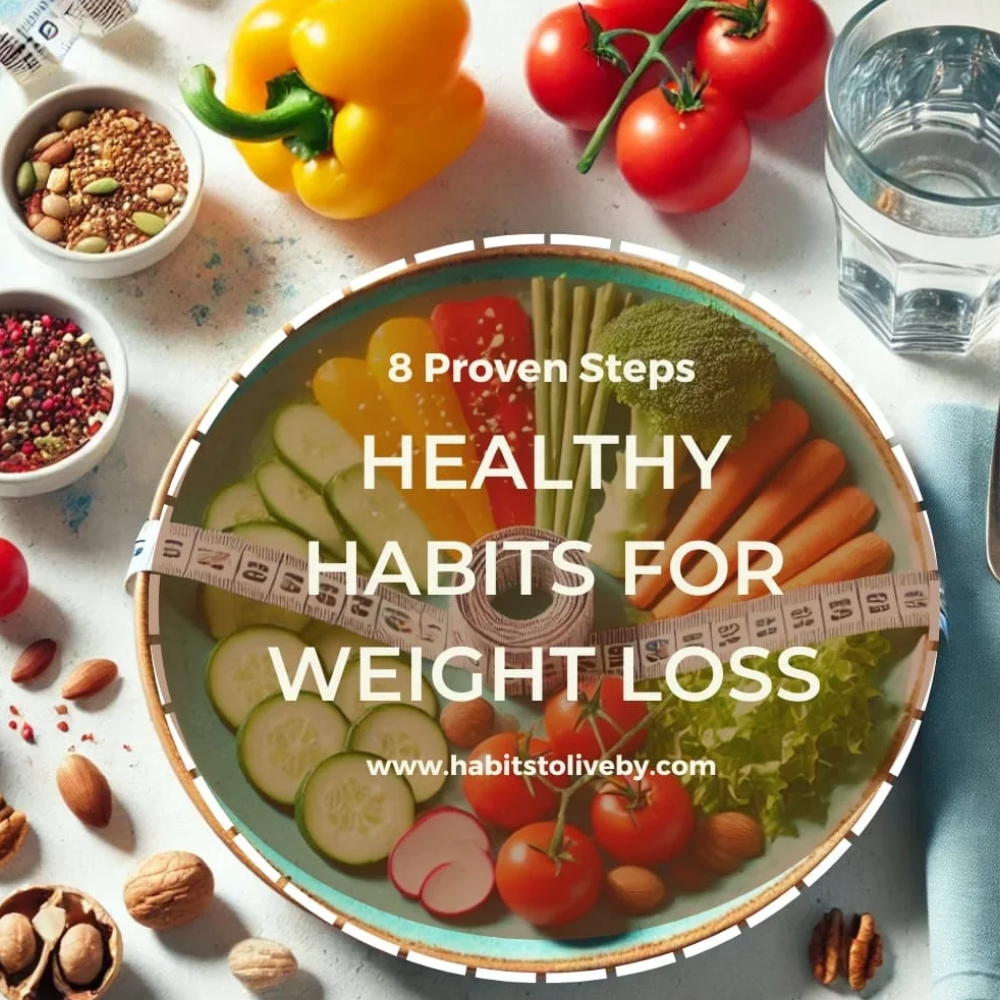A good weight control regime doesn’t mean you have to make myriad changes in your eating habits; instead, it means making a steady change in your lifestyle that will last longer and positively affect your health. Understanding that shedding calories and weight too rapidly can backfire and lead to health issues is essential.
There are many approaches to losing weight. However, choosing a healthy lifestyle is always wiser than having aggressive dietary regimes. Adopting healthy habits for weight loss, such as incorporating fiber-rich foods, practicing portion control, staying hydrated, and cutting out added sugars, can make your journey both effective and sustainable.
By focusing on these habits, you can achieve your weight-loss goals without compromising your overall health. In this blog, we will explore practical and healthier habits to help you lose weight and maintain a balanced lifestyle.
Why Sustainable and Healthy Habits For Weight Loss Are Essential
Aggressive diets, extreme workouts, and quick fixes lead to short-term results. However, to obtain sustainable results, you need to adopt healthy habits to lose weight over time. Healthy habits focus on progress rather than perfection. Simple changes, such as adding more fiber to your meals, staying hydrated, and practicing portion control, can have a significant impact over time. These habits are easier to maintain because they seamlessly integrate into your daily routine, making weight loss feel natural and achievable.
Sustainable habits also protect against the risks associated with extreme measures, such as nutrient deficiencies or metabolic imbalances. They promote a balanced lifestyle that reduces the risk of chronic diseases like diabetes and heart disease.
By focusing on healthy habits to lose weight, you create a foundation for long-term success. These small, consistent changes ensure a healthier body and a happier and more fulfilling life.

Healthy Habits for Weight Loss: 8 Proven Steps
1. Adding Fiber To Your Diet:
Develop a habit of eating a high-fiber diet regularly. It will improve metabolism and help with weight loss. A high-fiber diet includes vegetables, beans, whole grains, legumes, nuts, and seeds. Fiber is a carbohydrate that is not digestible. It helps keep the body full by absorbing water like a sponge and expanding in the stomach for extended periods, reducing calorie intake.
By including fiber in your diet, you can overcome the temptation to eat unhealthy snacks. A fiber diet is not only good for weight loss but also for overall well-being. Initiate by changing small habits like adding vegetables to your diet or replacing refined grains with whole grains.
Remember, fiber isn’t just about weight loss; it’s a key to better digestion, improved metabolism, and long-term health. So, embrace the power of fiber and make it a daily habit!
2. Include Healthy Fats:
While developing healthy habits to lose weight, incorporating healthy fats into your diet can be beneficial. Healthy Fats are essential for various body functions. They are suitable for controlling your appetite and giving you a feeling of fullness for a long time, preventing the urge to eat repeatedly.
Some beneficial, healthy Fats to include in your diet are nuts and seeds, avocados, olive oil, coconut oil, and fatty fish like salmon and sardines. These healthy fats improve brain health and hormone production, enhance nutrient absorption, help in the weight loss journey, and provide long-lasting energy.
Don’t shy away from healthy fats; instead, embrace them as part of a balanced diet. They’re your ally in maintaining a healthy weight and achieving optimal health.

Photo Credits: Muhammad Raheem
3. Portion Control:
Being mindful while eating and controlling your portions can do wonders for your weight. Continuously eating more significant portions increases the calorie count, leading to excessive weight gain.
Even if you follow a nutritional diet and fail to watch your calories, overeating will result in weight gain.
It’s always wise to use small plates and serve yourself in appropriate proportions. Chewing slowly and savoring each bite can help you recognize when you’re full and prevent overeating.
4. Cuttin Out of Added Sugars
In the era of readily available sugary delights and beverages, controlling your diet and losing weight can be an uphill task. However, maintaining your sugar intake can make this journey more rapid and fruitful.
Besides losing weight, reducing sugar intake has many benefits and helps improve the lifestyle. Replace sugary beverages with water or herbal teas, and opt for natural sweeteners like honey or fruit if you need a touch of sweetness. Reading food labels can also help you identify hidden sugars in processed foods.
Reducing added sugars is a powerful habit that can transform your health and make your weight loss journey more compelling.

5. Drink More Water
Keeping yourself well hydrated helps you lose weight by aiding metabolism and suppressing appetite. Replace sugary and carbonated drinks with water to cut unnecessary calories.
Having a glass of water before meals is recommended, which gives you a feeling of fullness and helps you eat less. Keep a reusable water bottle with you throughout the day to keep yourself hydrated. You can add a few slices of cucumber, mint, or lemon to your water to make it more refreshing and enjoyable.
Hydration is essential for overall health and can significantly aid weight loss efforts. Make water your go-to beverage and see the difference it makes!
Read other habits that are beneficial with water intake.
7 Habits for Diabetes Prevention
7 Eating Habits to Reduce Asthma Triggers
6. Add Vegetable To Your Diet
When it comes to weight loss, vegetables are our superstars. They are packed with minerals, vitamins, fibers and nutrients. Vegetables in your diet give you a feeling of fullness without adding any additional calories making it beneficial for controlling your weight.
Focus on colorful vegetables like spinach, broccoli, okra, carrots, and bell peppers to ensure a variety of nutrients. Add them to salads, soups, or stir-fries for a flavorful and healthy boost.
Making vegetables a staple in your diet is a simple yet effective way to support your weight loss goals while improving overall health.

Photo Credit: Karoonjhar Photography
7. Never Skip Your Breakfast
Starting your day with a simple breakfast can do wonders for your weight loss regime. Carbohydrates like whole grains, legumes, fruits, and vegetables have high nutritional value and provide fiber to your system.
Fiber is the most beneficial as it gives you a feeling of fullness and satisfies your food craving for extended periods.
Including protein in your breakfast can help you a lot in your weight loss journey. Including at least 50 grams of protein in your diet every day is crucial. Proteins tend to digest slowly and keep you fuller for an extended time.
8. Run Down Those Calories
Keeping yourself active and Exercising regularly burns calories, preserves lean muscle mass, boosts the metabolism, and keeps you happy and content.
Aim for 150 minutes of moderate-intensity workout or 75 minutes of vigorous weekly exercise alongside strengthening training.
Consider exercising a long-term commitment. Please include it in your healthy habits for weight loss and stick to it. Consistency is the key to success in your weight loss journey.
Lasting Impressions
The best approach to weight loss is practicing various habits to reach the intended goal of health. Do not look for the strictest diets or radical solutions; look for slow, sustainable change. Consuming foods that are rich in fiber, healthy fats, and adequate vegetables assist in managing hunger and increasing metabolism, and applying theories such as drinking water, eating respectable proportions, and minimizing extra sugar count as the most basic counseling approaches.
As crucial as this is, the same can be said for physical activity. Moderate and vigorous exercise increases the calories burned and strengthens the immune system. Pay a lot of attention to the first meal of the day because it stimulates your metabolism and helps you stay energetic.
As always, weight loss is a slow process that should be approached patiently and consistently, along with understanding when setbacks happen. By using these habits, you will lose extra pounds and help create a better and happier you.
FAQs For Healthy Habits For Weight Loss
Can I lose weight without exercising?
Yes, weight loss is primarily about calorie balance. However, exercise boosts metabolism, preserves muscle mass, and improves overall health.
How does fiber aid in weight loss?
Fiber keeps you full for extended periods, reduces calorie intake, and improves digestion, aiding in weight management.
Is it necessary to cut out all fats to lose weight?
No, healthy fats like avocados, nuts, and olive oil are essential for your body and help control hunger.
Why is breakfast important for weight loss?
Breakfast kickstarts your metabolism, provides energy, and helps prevent overeating later in the day.
How much water should I drink daily to support weight loss?
Aim for at least 8-10 glasses of water daily. Drinking water before meals can also help control appetite.


Pingback: Hydration Habits for Better Health: Why Water Matters More Than You Think - Habits to Live By
Pingback: Top 10 Habits to Boost Brain Health and Aging - Habits to Live By